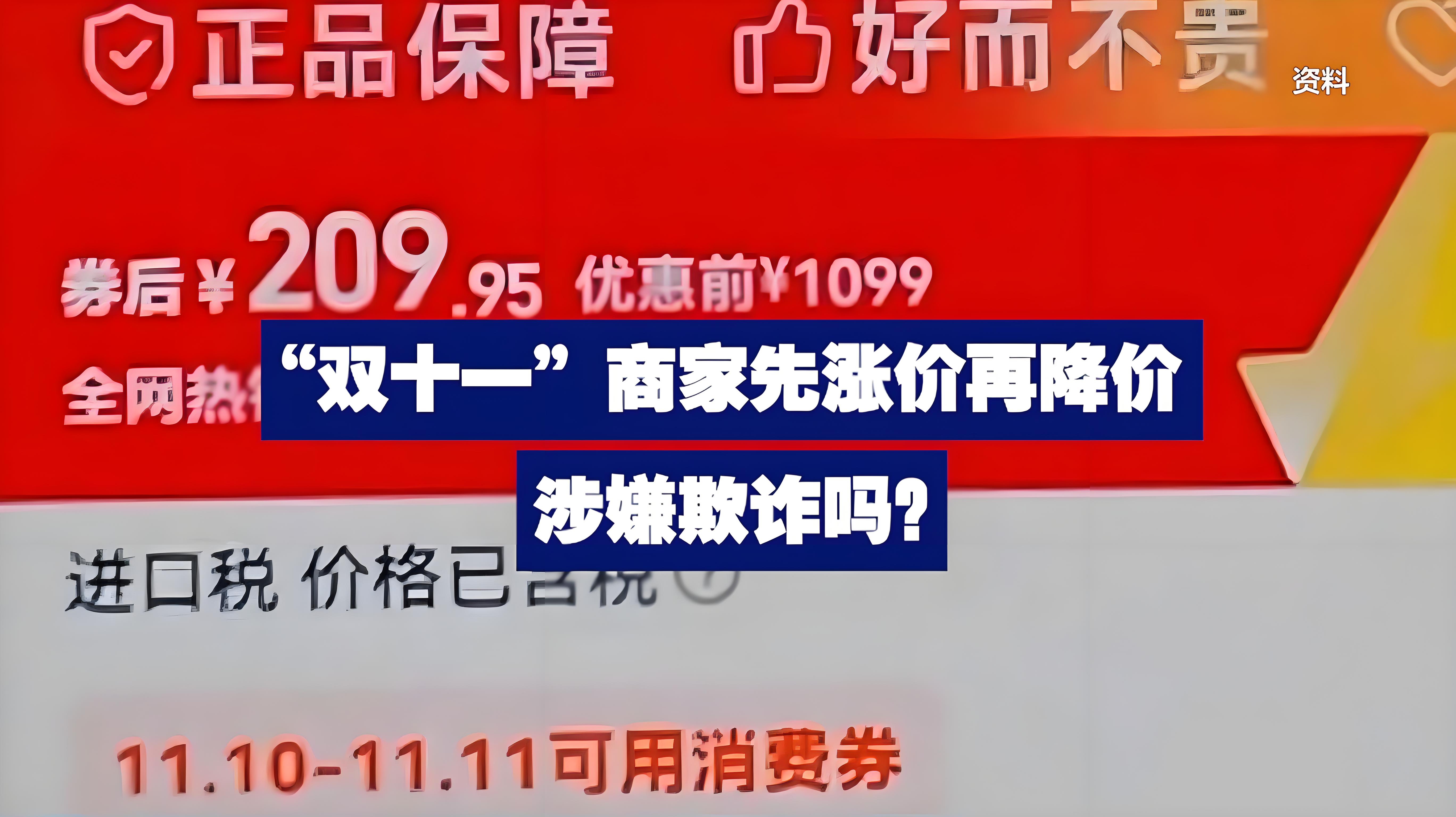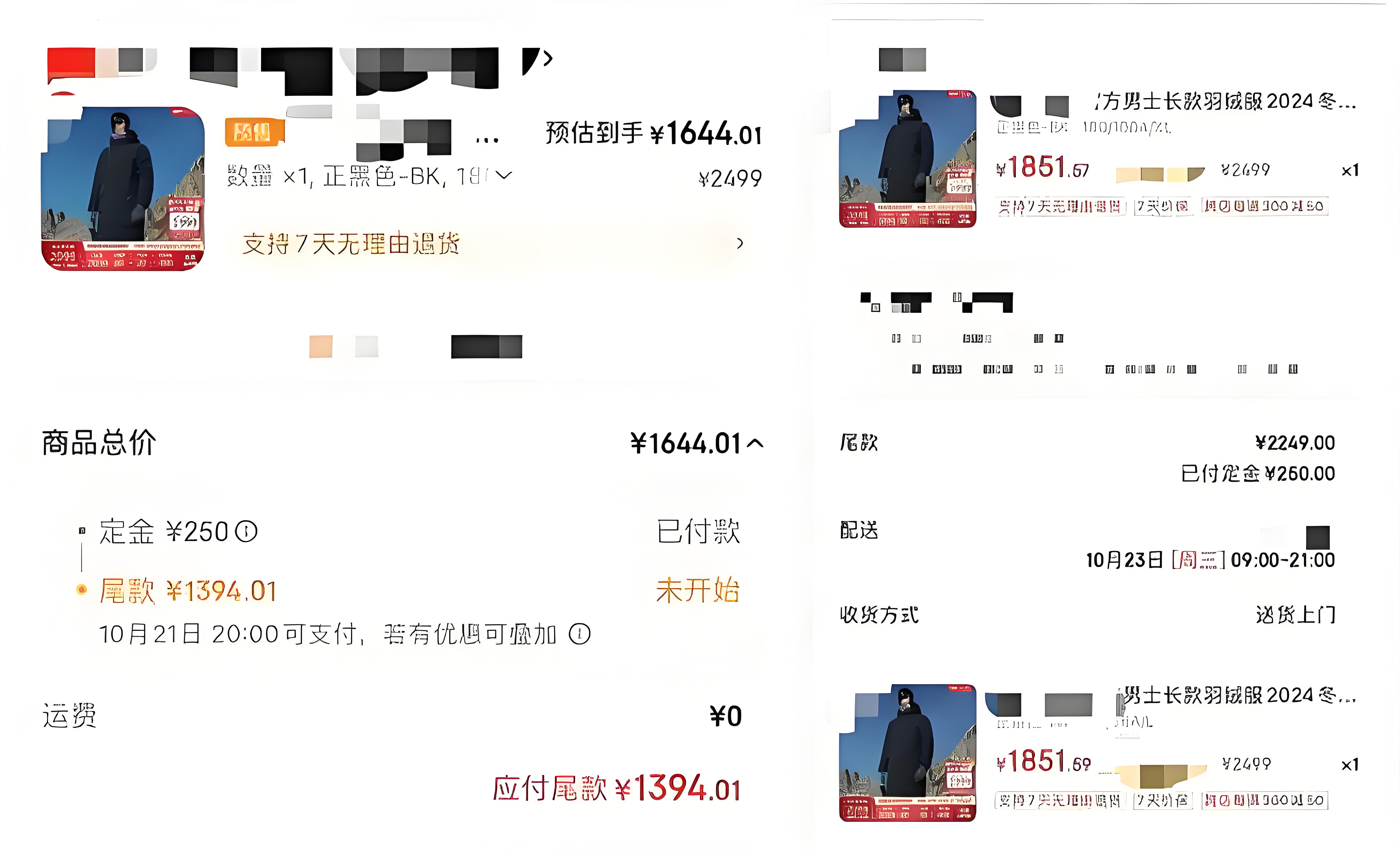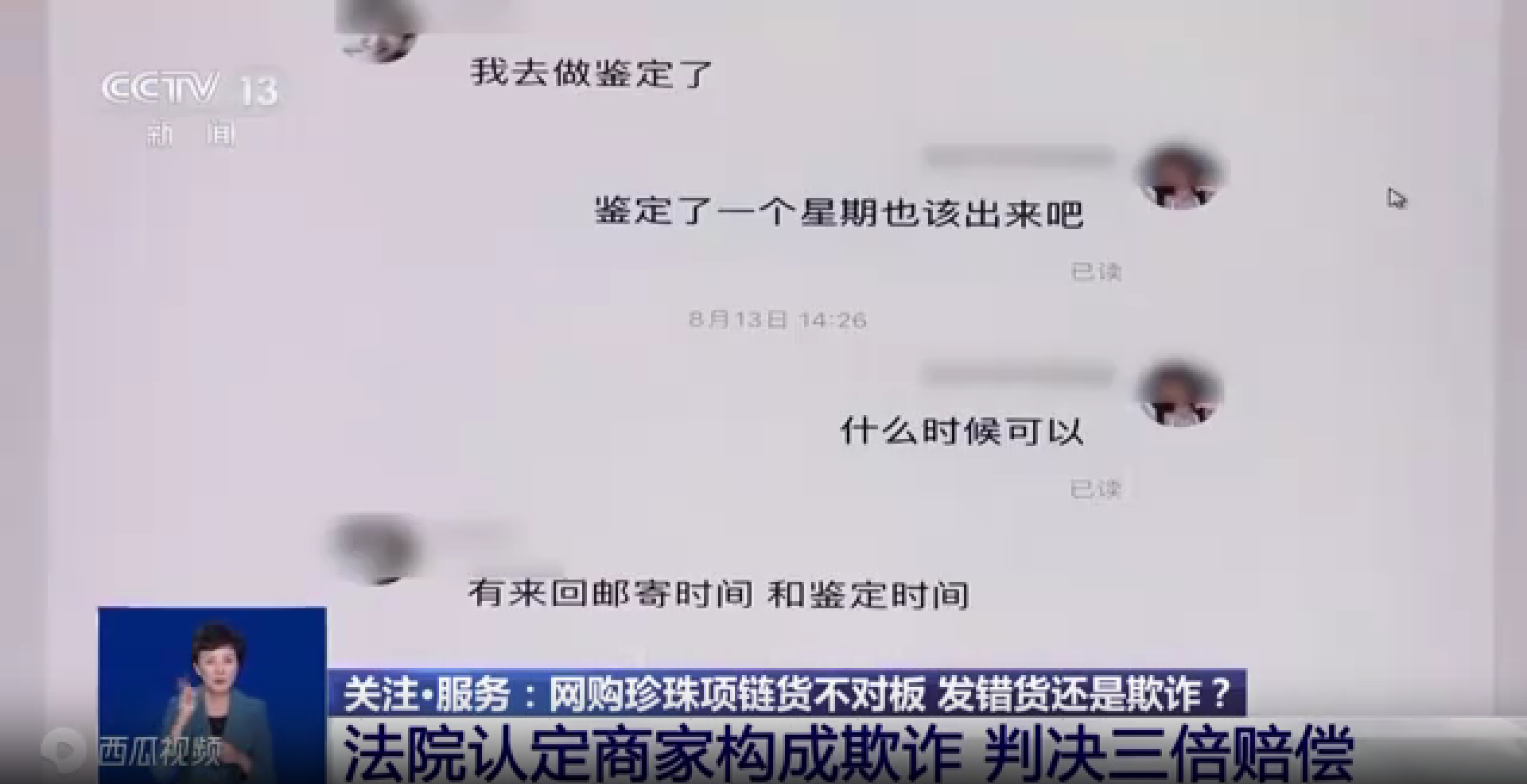
Each year during the Double 11 shopping festival, major e-commerce platforms roll out various promotional strategies, such as coupons, tiered discounts, and pre-sale deposits, to attract consumer participation. While some shoppers manage to purchase their desired items through careful planning, many encounter issues like fake discounts, price manipulation, and subpar product quality, which result in consumer rights violations. These disputes not only harm user experience but also hinder the healthy development of the e-commerce market.
Large-Scale "Inflated-then-Discounted" Pricing
Some consumers have reported noticeable "inflated-then-discounted" price fluctuations on products during promotions, with some prices even increasing after deposits were paid.

Pan Lei, a consumer, planned to purchase two down jackets originally priced at 2,499 yuan each, with a promotional final price of 1,644.01 yuan per item. After paying a 250-yuan deposit, the remaining balance due on October 21 was supposed to be 1,394.01 yuan. However, when it came time to pay, the balance had risen to 1,706.05 yuan, making the total cost over 200 yuan higher than expected. After unsuccessful negotiations, Pan opted to return the items before the deadline and filed a complaint with the 12315 Consumer Rights Protection Platform.
Similar cases occurred with other products. One consumer found the balance on an item, initially quoted at 149.46 yuan, had risen to 195.86 yuan. Despite keeping screenshots of the initial price, customer service did not provide a satisfactory response. Another consumer noticed the price of a jacket in their shopping cart increased from 296.1 yuan to 329 yuan, while a silk quilt rose from 309 yuan to 389 yuan, with final promotional prices even higher than before the sale period.
Such frequent price changes have eroded consumer trust in promotional activities. For example, Hong Ming purchased two sets of books for 188.2 yuan during the event, only to find the same books priced at 177 yuan post-sale. Customer service explained the price fluctuation was due to varying discounts and compensated him with an 11-yuan voucher, which Hong found insincere.
Price manipulation is not new on e-commerce platforms. Despite increased regulatory efforts, some merchants still engage in deceptive practices, undermining consumer experiences during Double 11 and casting doubt on the platforms' integrity.
Consumers have also reported receiving items that did not match their orders or were misrepresented due to false advertising. Some merchants delayed shipping for extended periods, often providing misleading reasons and pushing consumers to cancel and reorder at higher prices. Such behaviors represent classic cases of consumer fraud, infringing on legitimate rights and disrupting the fair market environment.
Ambiguity in Customer Service Responses
Regarding merchants’ "inflated-then-discounted" pricing practices during Double 11, one e-commerce platform stated it would monitor promotional product prices and penalize merchants engaging in malicious price hikes through warnings, deductions, or removal from the platform. Another platform’s customer service attributed balance changes to the expiration of promotions or price adjustments, advising consumers to verify the reasons for price variations.

To regulate promotional practices, the State Administration for Market Regulation issued the Compliance Guidelines for Double 11 Online Promotions, mandating platforms to optimize promotional rules, prohibit price fraud, and ensure transparency. Experts noted that tactics like price inflation before discounts or increased final payments constitute price fraud, misleading consumers through false pricing. According to the National Development and Reform Commission’s Provisions on Prohibiting Price Fraud, merchants must display accurate pricing, ensure promotional prices are lower than original prices, and provide evidence for original prices without arbitrary markings.
Recommendations for Market Order and Consumer Protection
The Dingxiang Defense Cloud Business Security Intelligence Center suggests strict regulatory action against false promotions, substandard products, and other issues to ensure merchants fulfill their commitments. Consumers should choose reputable sellers, engage in rational consumption, and prioritize after-sales protection over low prices.

When encountering disputes during online shopping, the Dingxiang Defense Cloud Business Security Intelligence Center suggests several approaches for consumers to safeguard their rights effectively:
-
Direct Negotiation with the Merchant
Consumers should first try to directly communicate with the merchant, explain the issue, and clearly state their demands. Many disputes can be resolved through open dialogue. -
Seek Assistance from the Platform
If negotiations fail, consumers can contact the platform's customer service or use the complaint channels provided by the e-commerce platform to request intervention. Platforms typically have rules and service guarantees in place to mediate disputes and provide fair resolutions. -
Involve Consumer Rights Organizations
If the issue remains unresolved after platform intervention, consumers can report their cases to consumer rights protection associations or relevant industry organizations. These groups can pressure merchants to fulfill their obligations and offer legal and regulatory guidance. -
Pursue Legal Action
As a last resort, consumers can file a lawsuit to assert their legitimate rights. Although this option may be more complex, it is an effective method when sufficient evidence is available. By following these steps, consumers can choose the most appropriate means to resolve their online shopping disputes.
Evidence Consumers Should Retain
The Dingxiang Defense Cloud Business Security Intelligence Center advises consumers to proactively collect and preserve key information and evidence, such as merchant details, product condition, transaction records, and quality verification materials, to ensure their rights are effectively protected.
-
Merchant Information
Consumers should keep their account registration and real-name authentication details to verify their identity as a party in the transaction. For merchants, it is essential to obtain information such as their name and address. According to the E-commerce Law, platforms are obligated to disclose necessary merchant details, which are usually accessible on major platforms. -
Product Information
Upon receiving the product, especially for high-value items, consumers should record an unboxing video to document the product’s initial condition. Such videos serve as evidence of the product's state and can resolve disputes related to damage or quality issues. Unboxing videos capture the product’s appearance, functionality, and packaging integrity, aiding in resolving disputes caused by transportation or defects. -
Order and Communication Records
Transaction records are critical for defending consumer rights. Consumers should save order snapshots to document pricing, payment times, and promotional discounts. Additionally, preserving communication logs, such as chat messages and call records with merchants, is vital. These records reflect the promises, negotiations, and dispute resolutions made during the purchase process, substantiating the authenticity and completeness of the consumer’s claims. -
Proof of Product Issues
If a product is faulty, consumers should retain relevant evidence, such as inspection reports, defect certifications, photos, and videos. These materials are crucial for proving the product's issues, ensuring authoritative handling of disputes.


